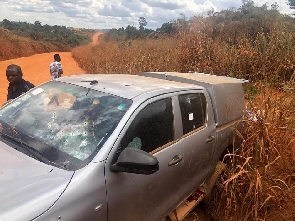Cash handling and cash transportation, also known as cash-in-transit (CIT), play a critical role in the financial sector by ensuring the secure movement and management of physical currency.
Despite the increasing prevalence of digital transactions in the global financial landscape, cash continues to remain a vital component of financial transactions in the economy. With its attendant fraud and security risks, it requires the institution of robust systems and practices to guarantee its safe handling and transportation.
The emphasis on cash handling and CIT is driven by the imperative to uphold the integrity and security of physical currency throughout its entire lifecycle. Financial institutions, retailers, and other entities involved in cash operations must adopt rigorous measures to protect against theft, fraud, and operational risks.
The background of cash handling and transportation practices is rooted in historical incidents of cash-related crimes, which have necessitated the implementation of enhanced security measures. Notable cases of cash heists, robberies, and fraudulent activities have underscored the vulnerabilities associated with cash management, compelling the financial sector to establish comprehensive security protocols.
Analysis of the Ghanaian landscape reveal inadequate security measures such as the use of inappropriate vehicles for the transport of cash, predictable routes and schedules, lack of training and preparedness among cash collection teams, insider threats, limited use of technology and countermeasures, amongst other are some specific risk areas and vulnerabilities exploited. These factors contribute to the susceptibility of cash vans to criminal attacks, compromising the safety of personnel and the secure transportation of cash.
In light of the recent attack on a cash van at Ablekuma, a suburb of Accra, it is essential for players involved in financial transactions to remain vigilant and take necessary precautions to ensure personal safety and security of assets. The incident serves as a stark reminder of the risks associated with cash transportation and the need for robust security measures.
In recent times the Bureau has taken particular reviews on attacks on mobile money operators which has also become a fundamental cash handling risk and a major threat to financial inclusion efforts.
Criminals are drawn to these operators particularly agents/vendors within high-risk areas because of sometimes the substantial amounts of cash they handle, the perceived ease of targeting them, and their relatively limited security was they operate in less secured kiosks. The lack of awareness and training among the vendors also make them more susceptible to these attacks.
To address these risks, it is crucial for mobile money vendors to implement robust security measures. This includes the installation of surveillance cameras, alarm systems, and physical barriers to deter criminals.
Regular risk assessments should be conducted to identify vulnerabilities and develop appropriate mitigation strategies. It is also essential to provide comprehensive training to vendors on security protocols, situational awareness, and emergency response procedures.
Collaborating with local authorities and industry stakeholders can further enhance security efforts and create a safer environment for mobile money vendors. By taking these steps, vendors can reduce their vulnerability to attacks and ensure the protection of their staff, assets, and the funds they handle.
It is essential that the financial sector wholistically identifies and implement practical strategies to mitigate the incessant attack on its operations. To mitigate such threats, players within the financial and cash-in-transit sector are recommend to:
1. Strengthen security measures in cash management, including comprehensive background checks on employees, installing advanced surveillance systems, employing trained security personnel, adopt regular security drills and security training for security teams and employees.
2. Enhance security measures at various cash pickup points as well as areas that demand the vans to slow down or stop.
3. Financial institutions who depend on the services of cash transportation institutions are required to ensure staff of the firms are properly trained and resourced.
4. Implement strict protocols for cash transportation, such as utilising armoured vehicles/bullion vans, varying routes and schedules, and avoiding predictable patterns.
5. Establish effective communication channels between cash transport teams, law enforcement agencies, and relevant stakeholders to swiftly respond to any potential threats or suspicious activities.
6. Encourage the public to report any suspicious individuals or activities to the authorities promptly. Increased community involvement and vigilance play a crucial role in preventing such incidents.
7. Arms control measures properly implemented can significantly aid in mitigating attacks on cash vans. By strictly regulating the possession and use of firearms, authorities can limit the availability of weapons to criminals, making it more challenging for them to carry out violent attacks.
This restricts the potential firepower criminals can bring to bear during a cash van heist, thereby reducing the overall risk and severity of such incidents.
It is important for security/law enforcement agencies to step up public sensitisation on the roles of the general public to contribute to intelligence gathering and sharing and secured approaches that citizens can adopt to support and foil activities of criminals involved in these illegal activities.
Stay safe and remain alert.
General News of Thursday, 29 June 2023
Source: Eric Kwaku Mensah, Contributor

















